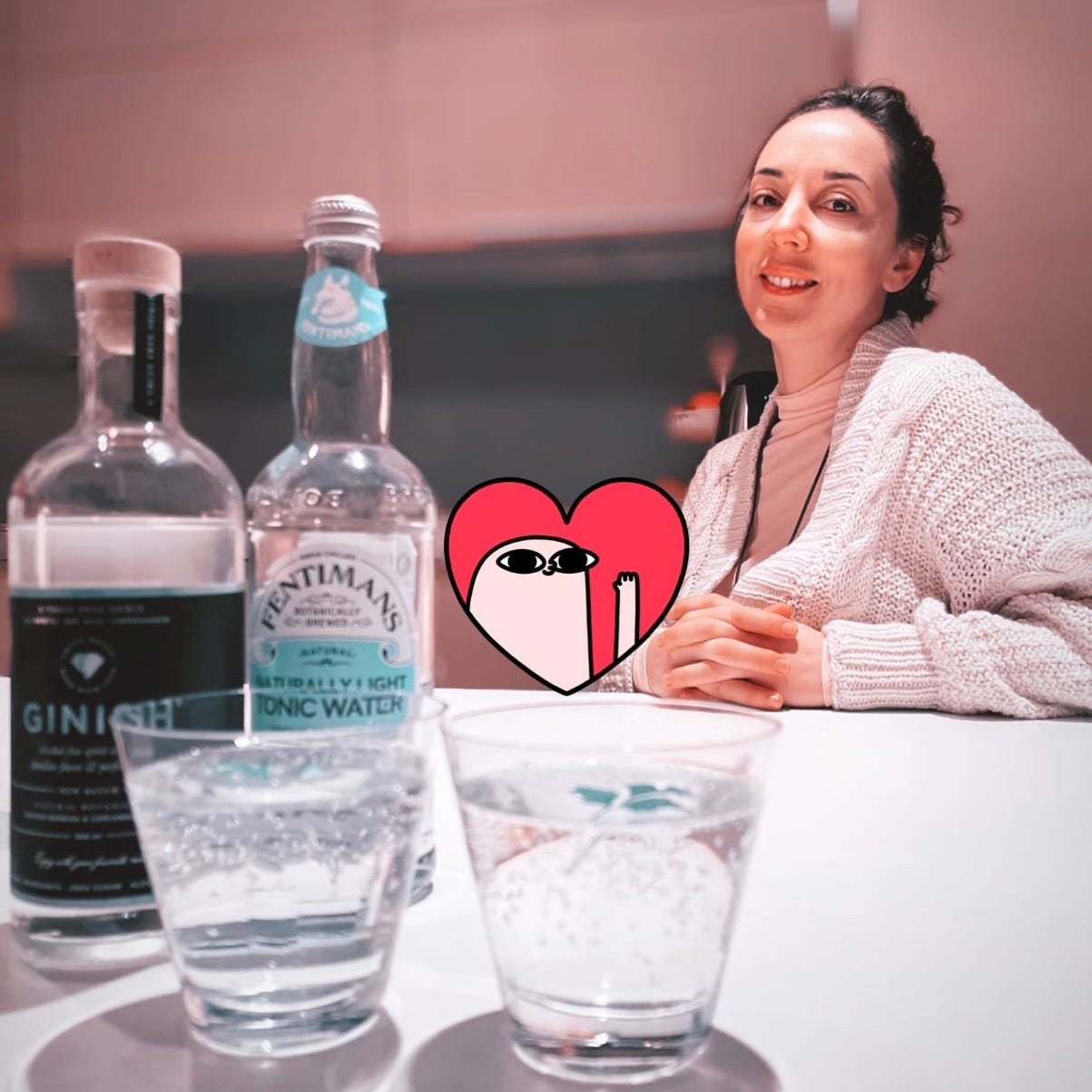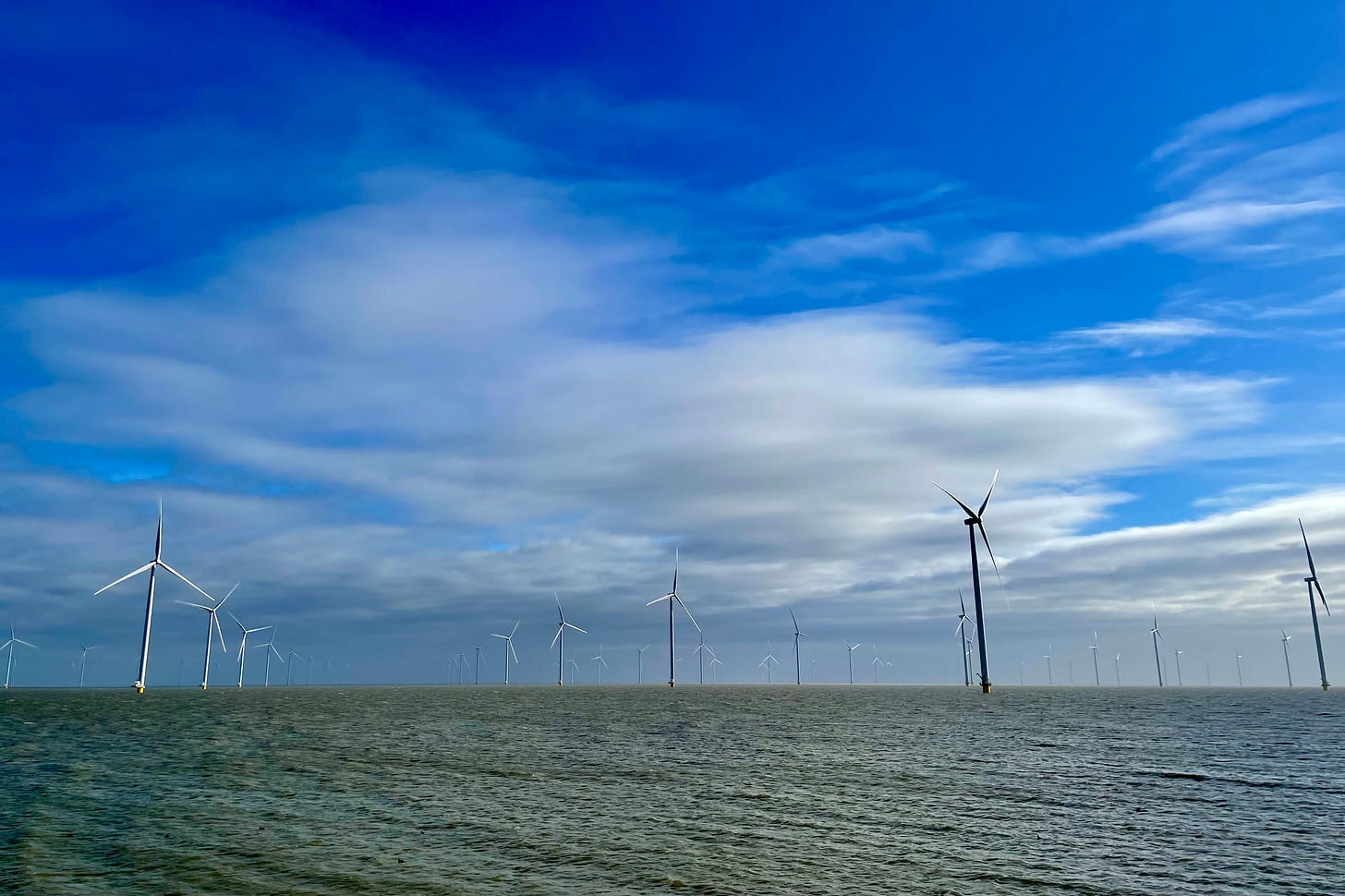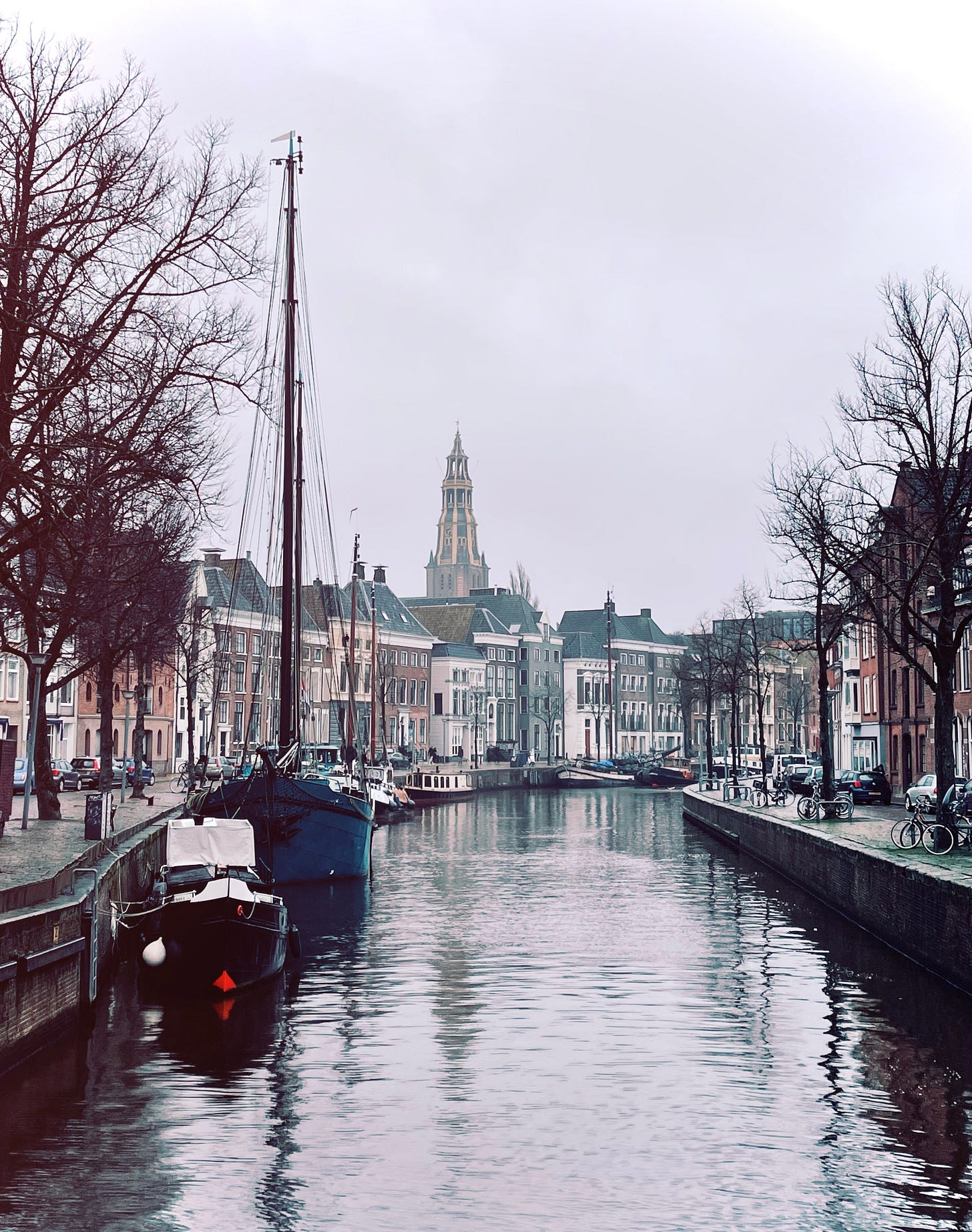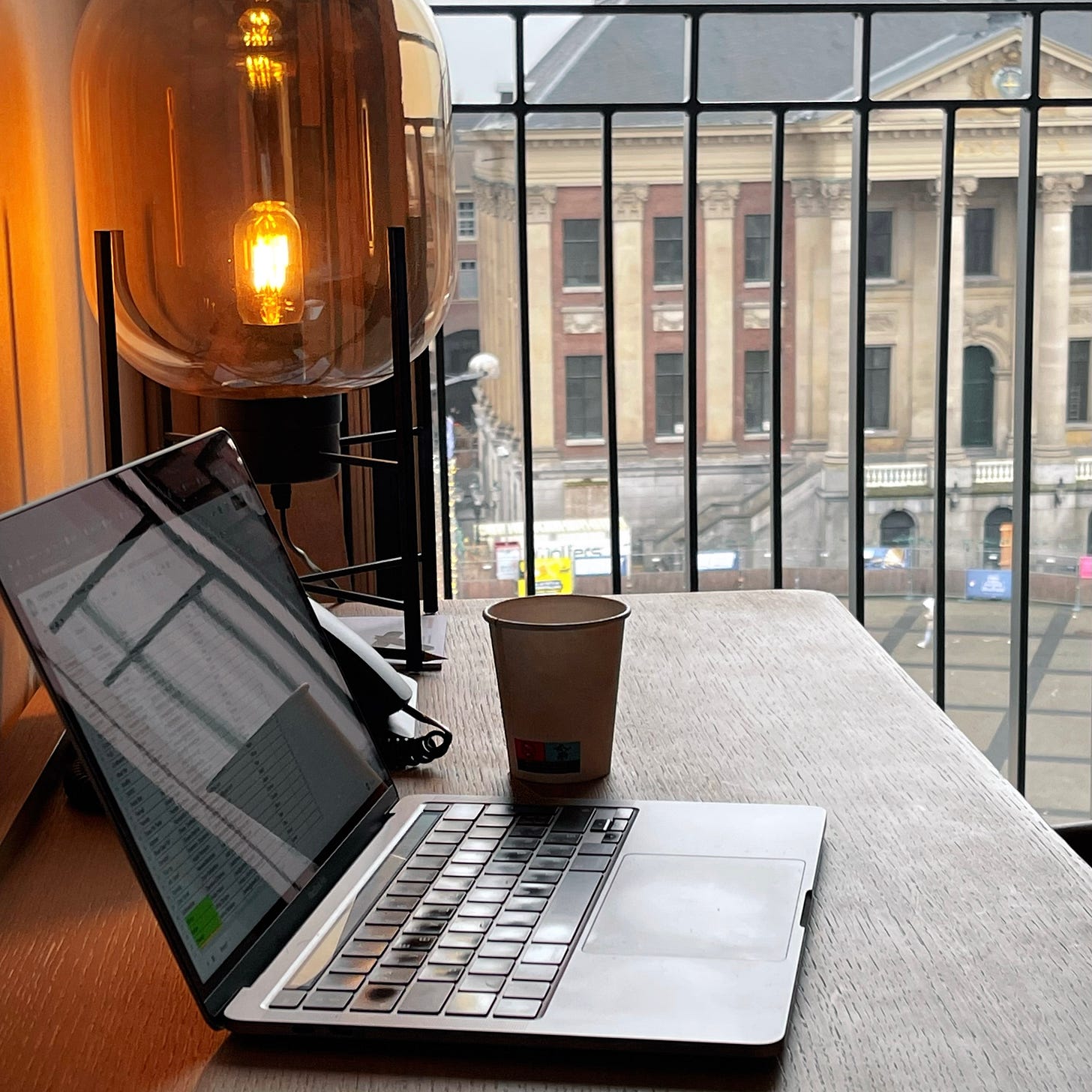February 13; a week in Holland 🇳🇱
Crowd-free Dutch cities, privilege awareness, and of course, EV adventures... this was my week 🧡
Happy Tuesday,
This time I admit to breaking my promise to not email outside Sundays, but in the last few days I simply wasn’t able to find a spare moment to share my thoughts with you.
It’s not because of Valentine’s Day of course, although Ellie and I did have a wonderful evening at home last night, breaking open a bottle of Ginish 0% alcohol gin, brewed by Danish distiller Ish Sprits, which was gathering dust in the cupboard for a few months:
Other than this, I enjoyed a fantastic time back home in the Netherlands last week, reconnecting with family and friends, and eating copious amounts of Filet Americain, my all-time favorite uber-Dutch equivalent of steak tartare.
It’s probably the best time ever to visit the Netherlands right now, before summer 2022. Despite over a million new Covid-19 cases registered in the past three weeks, the new government has decided on a policy to structurally reopen society. With cases growth now flattening and the intensive-care wards of the hospitals relatively unloaded, it seems like by summer things will be back to pre-2020 state, pending of course the absence of a new, more dangerous Covid-19 variant.
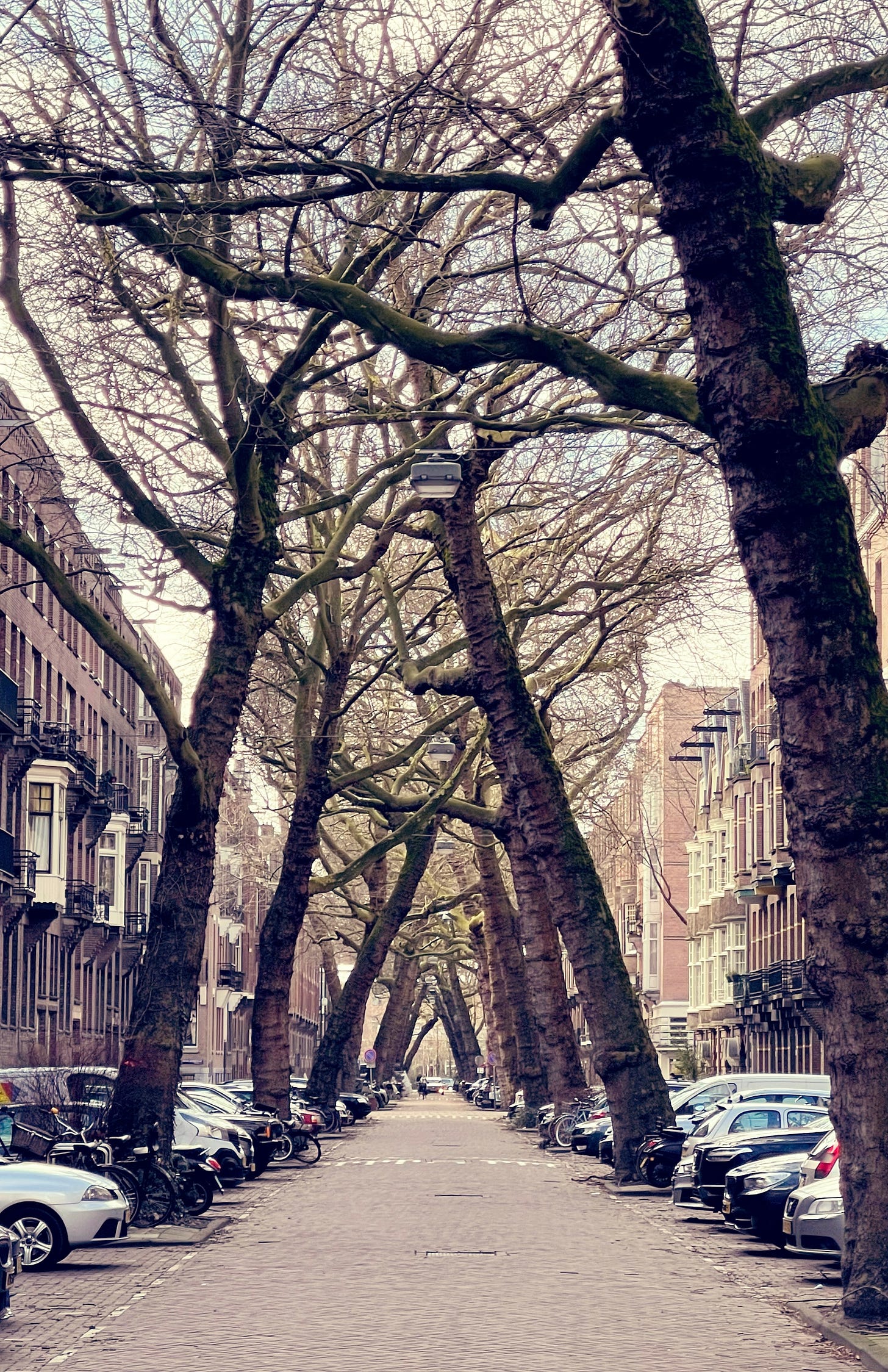
This all means that most public venues are open in the country, with the last shut-down category, nightclubs and large entertainment venues, supposed to reopen this week. Yet, tourist crowds are totally absent. What you get in Amsterdam, for instance, is an experience that we’ve never had in our lifetime: a pleasantly empty city. You can walk around, meet people, go to restaurants and museums, without waiting in crazy lines or having to book tables two weeks in advance.
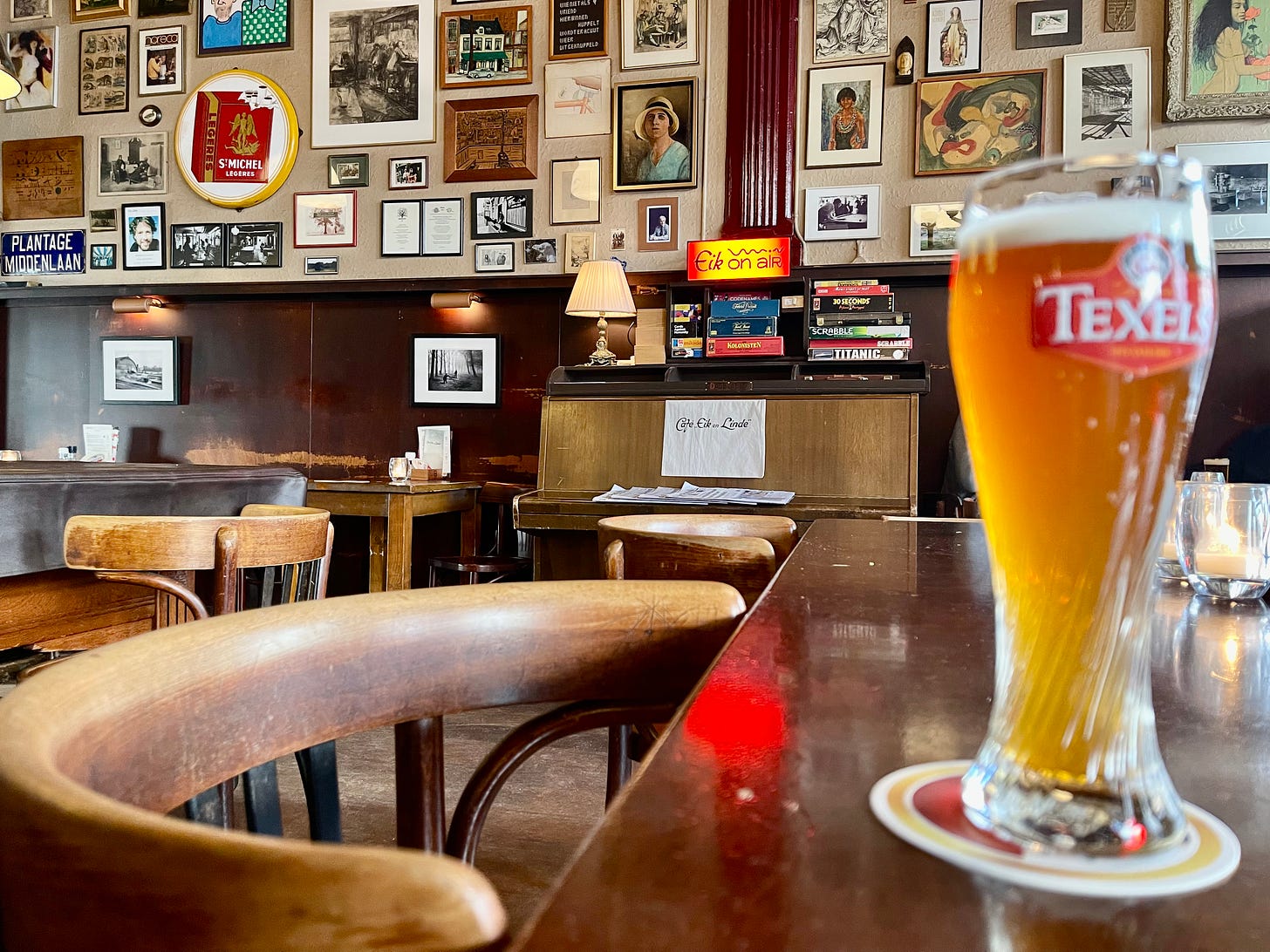
Apart from this general upbeat feeling about the Netherlands, I noticed two interesting things when there:
Despite the crazy Covid-19 numbers, there is a broadly-accepted culture of (self) testing now. Most of my friends, if they have a feeling they’re getting symptoms, or if they know that someone they recently met has them, simply book an appointment for a (free) PCR test or pick up a box of antigen self-test kits from the supermarket (sold in boxes of five for EUR 10). Also when it comes to meeting in person, many say “I’ll do a quick self-test in advance, just for your comfort”, nudging you obviously to do the same. I never quite understood this before, but very frequent and easily available testing is a really important part of keeping a tab on the virus spread, and making normal social life possible in a sustained way.
The other, quite fascinating spectacle, is to see the Netherlands fast-forward adopt a process of gender- and racial-bias awareness, education, and prevention. Against a backdrop of weekly revelations of sexual-harassment and -assault allegations against leading entertainment, sports, and political figures, an entire national discussion has come up, about male and white privilege, in ways unthinkable in the country just a year ago.
What I like most about this, is how in distinctly Dutch fashion, there is a plethora of opinions voiced every day in the press, media, and in discussions, public and private. Some people think the awakening isn’t nearly fast or deep enough, some find it all nonsense, and many people, like me, are somewhere in between, sympathizing with the idea, but concerned about possible negative effects, like widening societal gaps and witch hunts.
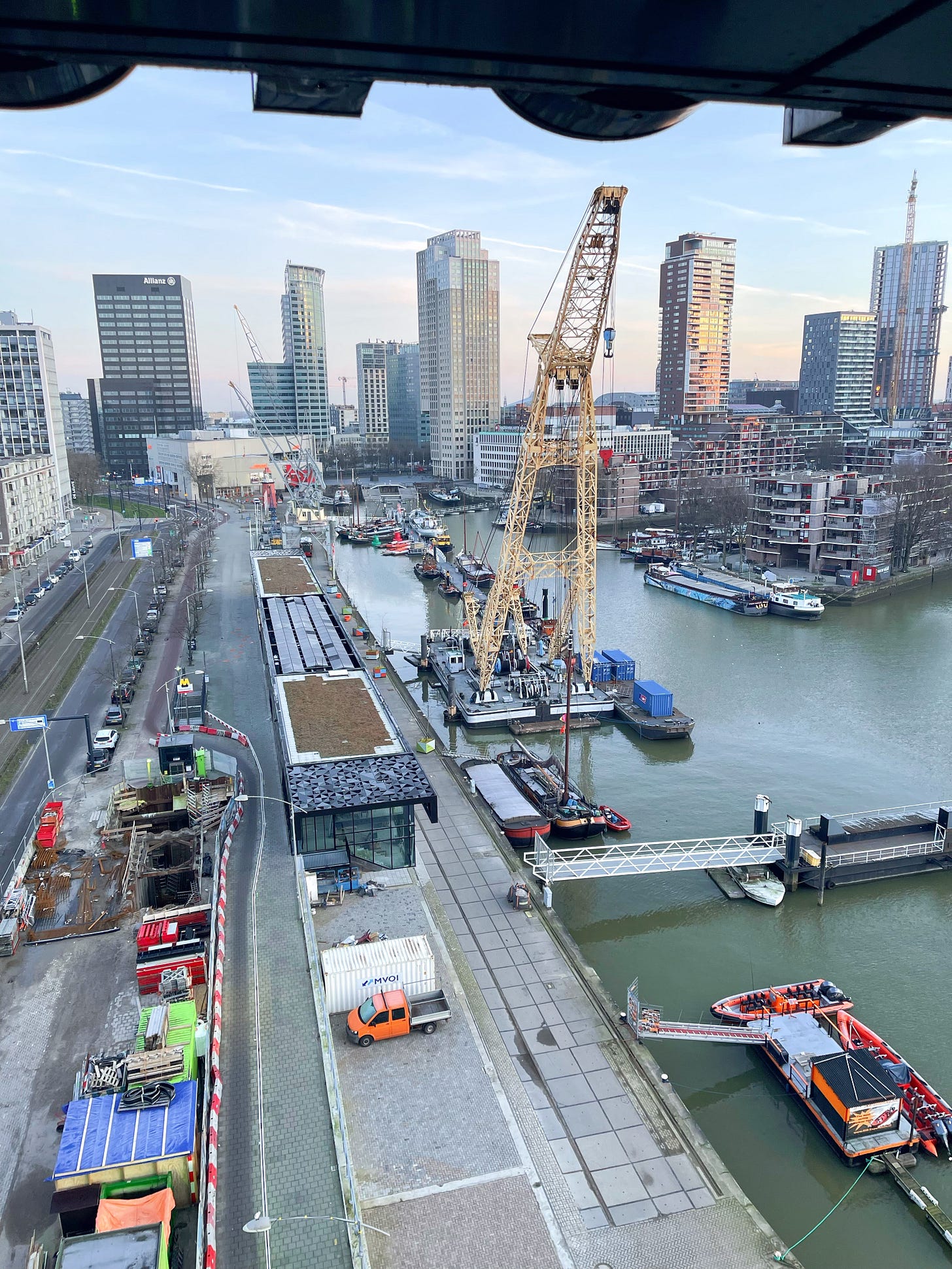
Against this backdrop, award-winning Dutch journalist Joris Luyendijk published a book, called “The Seven Check Marks: How Men like Me Play Boss”, which explores the idea that if you’re male (1), white (2), straight (3), higher-educated (4), with higher-educated parents (5), native in Dutch (6), and living in the urban part of the country (7), you’re basically part of an elite club that is fast-tracked for career and societal success, reaching any significant achievement with considerably less friction than those that don’t tick the boxes. According to Luyendijk, each check-mark takes about two years to catch up on if you’re born or raised without it.
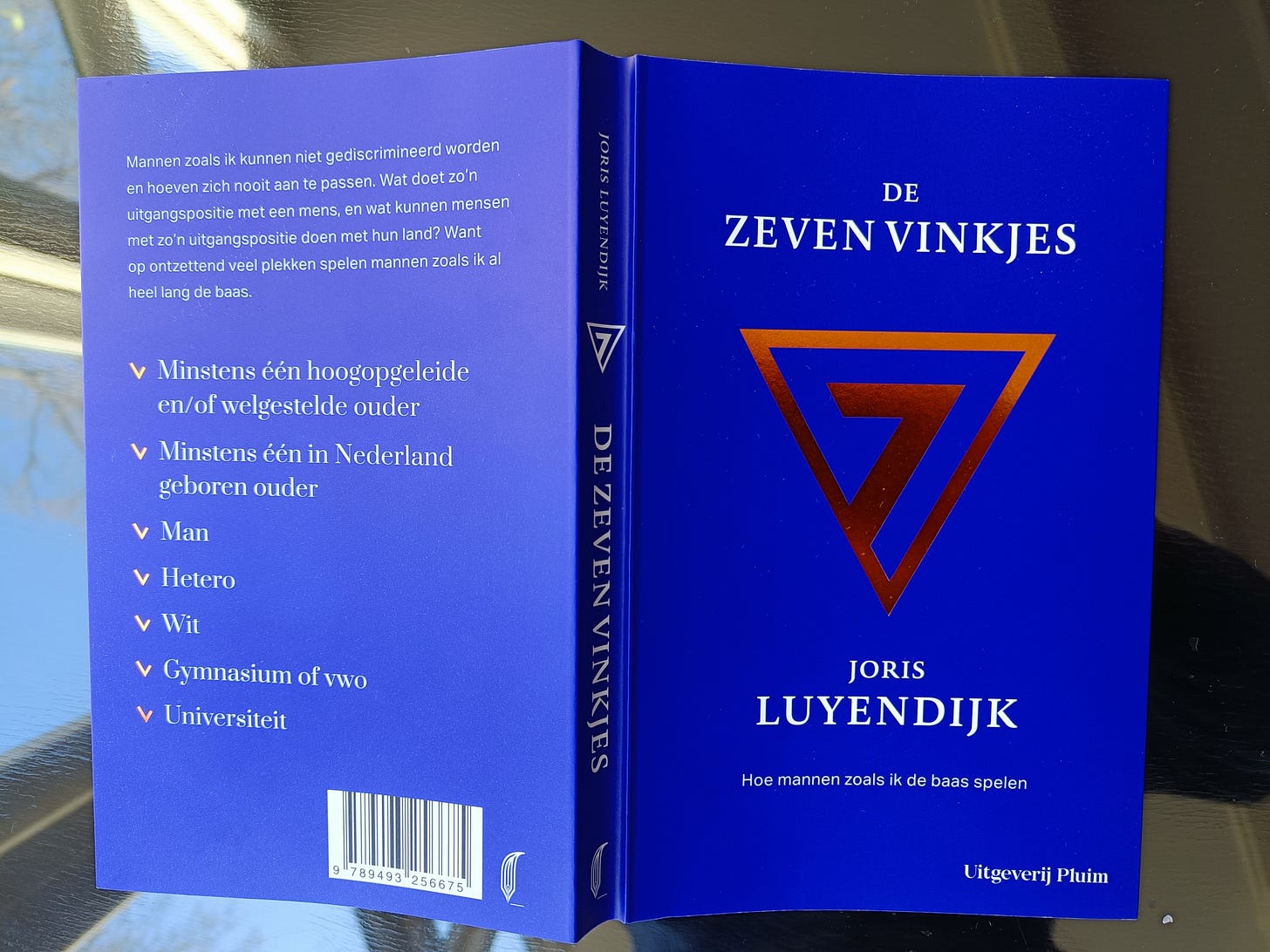
I personally completely subscribe to the idea, and am aware that where I am in life is fully thanks to comfortably ticking six of the boxes, and as someone who wasn’t born Dutch, having my natural language skills and white-highly-skilled-migrant-parents background help me to easily tick the seventh (native in Dutch).
While I haven’t finished reading the book yet, the part I’m most interested about in is how to best engage with people who see that privilege not as a problem, but as a natural barrier that is there for a reason. Especially the older and more socially conservative people tend to think this way, acknowledging the privilege bias, but also holding the opinion that it’s something that makes society work, and shouldn’t be touched. I personally strongly disagree with this, but then I recognize that it’s easy for me to think that way, having been exposed to much more diversity than they have.
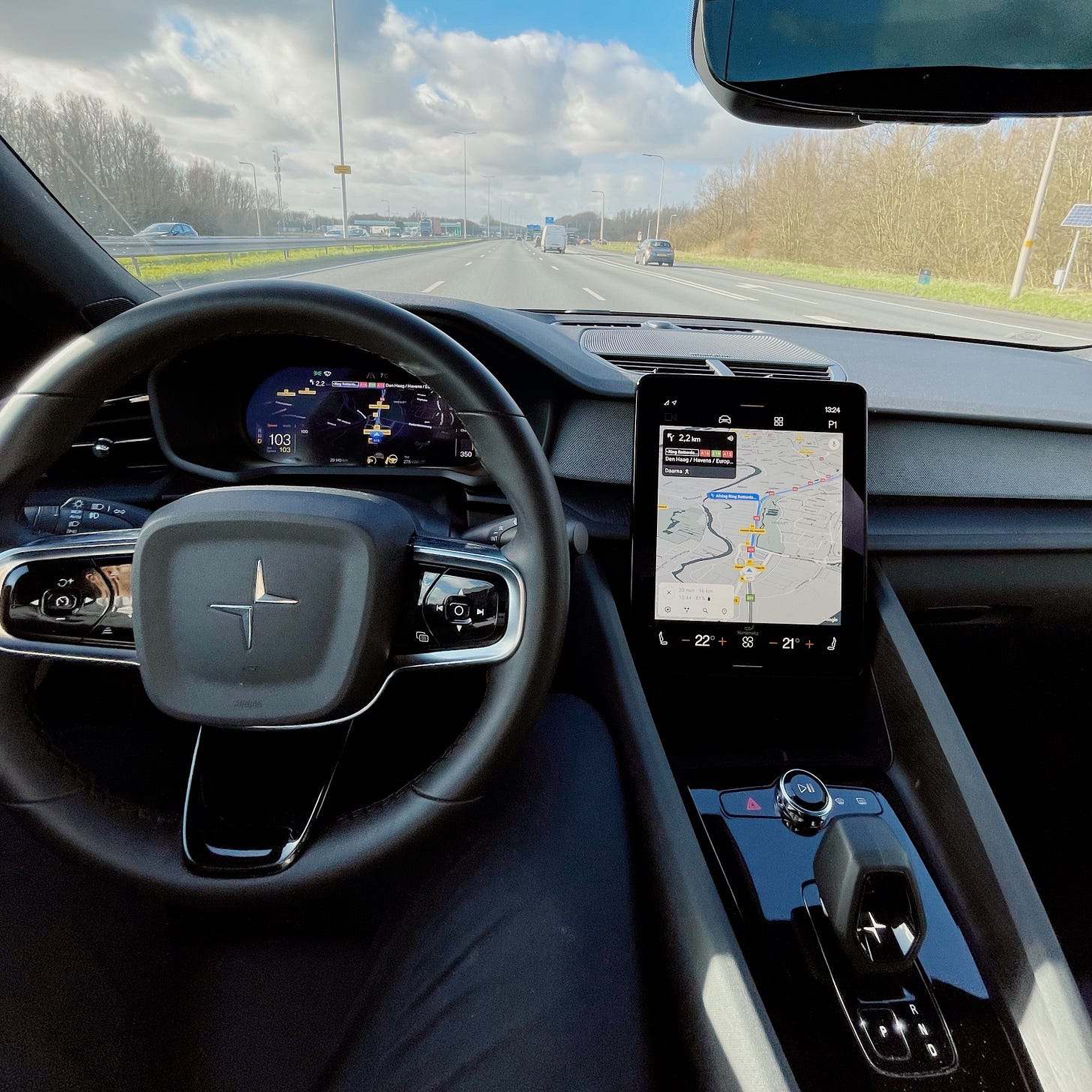
I clocked a neat 900 kilometers criss-crossing the Netherlands last week, this time not only in a UFODrive Tesla Model 3, but also with a Polestar 2, that a guy called Jop from Dordrecht peer-rented to me via the SnappCar rental platform. It is now absolutely the most wonderful car I’ve ever driven. It’s like the best of Volvo combined with the best of Tesla. You get a powerful 78 kWh battery, good for up to 400km of range, and a self-driving mode that is considerably smoother than Tesla’s, but also all of Volvo’s sturdiness, comfort, and space. If they ever start selling them (and offering maintenance) in Bulgaria, I’ll very probably get one.
Thanks for checking in today and talk to you next Sunday! 😇
If you enjoyed this Sunday Max update, feel free to subscribe to get it weekly in your inbox, if you haven’t yet:


